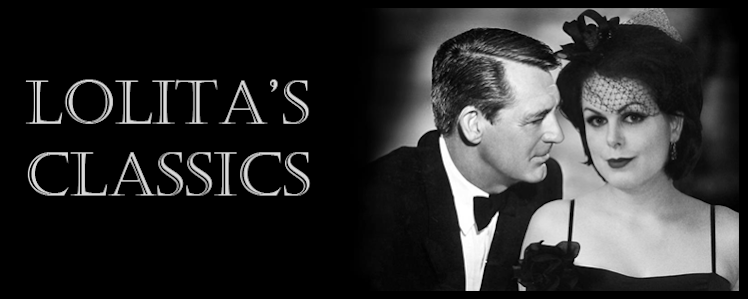
Director: Billy Wilder
USA 1945
101 min
I will do my best to overcome my fatal disease (I have a cold, caughing up my intestines) and write a little review for you. My brain is however just a big "duuh...?", so don't expect too much. God, I hate being sick!
The Lost Weekend is a film (like a million others, I'll try not to mention it every damn time I write a review) I've wanted to see for a long time, but somehow never got around to it. Just like Jules et Jim [review]. Just like all darn movies you have to see before you die.
Therefore a cold is a pretty good thing, if you want to be optimistic. While lying around, feeling sorry for yourself, you can catch up a little on the movie viewing.
The script to The Lost Weekend was not what people were used to in the subject of depicting alcoholics. If the drunkards weren't a comic relief, their distorted reality wasn't depicted with the same depth as it was now. We've seen the tragic fate of a drunkard in films before (i.e. the Barrymore brothers - John in Dinner at Eight, and Lionel in A Free Soul), but they were seen from a third person perspective. From that perspective it's easy to judge. The difference with The Lost Weekend is that we, whether we want to or not, follow an alcoholic's downward spiral up close, and we are more or less forced to have compassion.
I was immediately impressed by the professional story-telling (as always, when Billy Wilder is involved). Within only ten minutes the plot was clear and the depressing tone was set:
Struggling writer Don Birnam (Milland) is packing his bags to go away for a weekend with his brother (Terry). Away from the city, away from "what he has gone through". What they are talking about is soon made obvious, when Don makes his brother leave the room to look for his typewriter. He uses the seconds alone to retrieve a whiskey bottle he has hanged in a rope from the window, probably to try packing it with him.
Enters Helen (Wyman). She and Don's brother soon notices the bottle, not being surprised at all they empty the whiskey in the sink. Helen tells them that she is going to the opera by herself, and Don convinces his brother to go with her so he can be alone for a while. A bit suspiciously they agree. His brother informs Helen that he had thrown away all hidden bottles, and that Don has no money to buy new liquor.
As soon as Don's alone he however tracks down some hidden money, and soon he sits at the nearest bar with two new bottles of whiskey. He gets drunk, misses his train and spends his "lost weekend" with liquor and a tired bartender (Da Silva).
Now, that's just a brilliant introduction. We already have experienced, and understood, Don's unavoidable, pathetic need for liquor. He has already lied, stolen money, neclected his brother and his girlfriend and fallen back in the alcohole daze he finds such comfort in.
It's a brilliant film that definitively needs re-watching. The film goes from uncomfortable to sad, from sad to despair, and from despair to pure horror. A favourite part of the film is when Don eventually ends up at a detoxification clinic among equals, and an amused male nurse (Frank Faylen) who informs Don about his awaiting horrors and deliriums. (I wanted to include that clip for you, but my film editing program has died on me.)
I adore the cinematography by John F. Seitz, nominated to an Oscar for the job. I still can't believe that this is a 1940's film. The feeling is that of a 1950's film noir, and the camera work could easily fool you to think that it's the 1960's. Truly professional, I'm simply amazed.
Ray Milland won a well deserved Oscar for his performance, but the whole cast would have deserved one each. Wyman is very believable as the troubled, loving girlfriend who won't give up on Don, Terry is equally understandable as the brother hos has given up, Da Silva is unforgettable as the cynical bartender and Dowling sympathetic as the happy, flirty woman who has a cruch on the doomed male lead.
Three other Oscar statues were dealt out - two to Billy Wilder for Best Director and Best Picture, and another to Wilder and Charles Brackett for Best Script.
One of the several sad bar scenes.
Some interesting trivia:
The liquor industry was worried that the film's depiction of the danger of alcoholism would hurt their income, and therefore offered Paramount $5 000 000 not to make the film.
The cencorship lobby was equally concerned, but the other way around - they thought the film might encourage drinking! Real smart guys, huh?
Ray Milland was perhaps one of the earliest method actors: to prepare for the role of Don Birnam he spent one night at the Bellevue Hospital (where the clinic scenes were filmed), and stopped eating much, since most alcoholics forget to do so.


